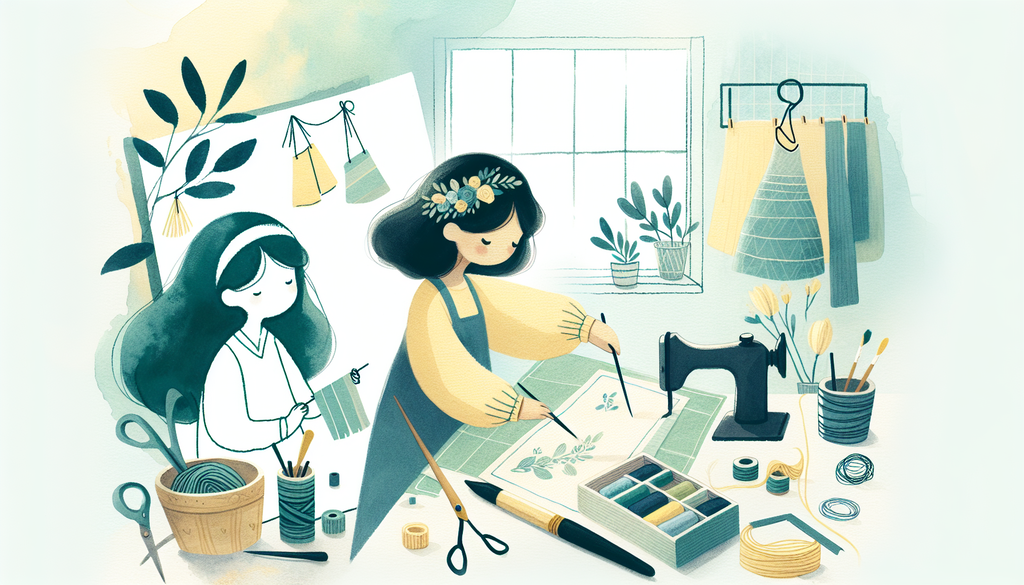Crafting Success: DIY Projects for Gifted and Special Needs Kids

Parents and caregivers often wonder how to keep their children engaged while ensuring that activities cater to their unique learning needs. This is even more relevant for parents of gifted and special needs children. When children are identified as gifted, are on the autism spectrum, have ADHD, or are diagnosed with other learning disabilities, they may require more specialized methods of learning and engagement. So, how about some fun and educational DIY projects!
When planned thoughtfully, DIY projects can serve multiple purposes for special and gifted children. They can exercise their creativity, learn new skills, and cater to their love for exploration and discovery. These projects can also serve as a platform for improving motor skills, cognitive development, and socio-emotional learning.
Let’s dive into some DIY experiments that are both entertaining and educational. Remember, these are designed to be customizable to your child’s abilities and interests!
DIY Project 1: Sensory Play Dough
Sensory play is known to assist children with special needs in different ways, enhancing fine motor skills, language development, and cognitive growth. One way to create a sensory experience is by making play dough at home. This kneadable, moldable substance works well for tactile stimulation.
Materials Needed:
- 2 cups of flour
- 3/4 cup of salt
- 4 teaspoons of cream of tartar
- 2 cups of lukewarm water
- 2 tablespoons of vegetable oil
- Food coloring (optional)
- Essential oils (optional)
Creating play dough is a collaborative activity. The process involves mixing ingredients, kneading and eventually forming shapes with the dough, which are all beneficial for developing motor skills. Furthermore, adding essential oils can stimulate the olfactory senses.
Instructions on how to create play dough are plentiful online. However, when working with children with sensory sensitivities, you might want to check out our blog on sensory-friendly learning environments, which discusses reducing overwhelming sensations and making activities more accessible.
DIY Project 2: Story Stones
Story stones are a powerful tool for fostering creativity, encouraging imaginative play, and building language skills. They’re also a fantastic way for gifted children to depict complex thoughts and narratives.
Materials Needed:
- Stones (preferably smooth and flat)
- Paints
- Paintbrushes
- Sealant (like Mod Podge)
This DIY activity includes gathering stones, painting them, and finally using them to weave stories. This fosters creativity, concentration, fine motor skills, and narrative thinking.
Our post about cultivating curiosity through projects for special needs children can give you more insight into how creative projects like these help special needs children in their learning journey.
DIY Project 3: Homemade Lava Lamp
Gifted children often show heightened interest in scientific logic and observation. A homemade lava lamp serves as an exciting science experiment, teaching children about chemical reactions, density, and intermolecular polarity.
Materials Needed:
- A transparent container (like a glass or a jar)
- Water
- Vegetable oil or baby oil
- Food coloring
- Effervescent tablet (like Alka-Seltzer)
The creation of a lava lamp involves an experiment, which brings science theory into practical life. This can be particularly appreciated by gifted and high-aptitude kids who thrive on challenging tasks. We previously explored this interest in our post highlighting alternative pathways in gifted education, shedding light on how unconventional educational routes can tap into a gifted child’s unique skills and passions.
Remember, while these DIY projects can be fun and educational, it is also important to ensure they are done in a safe and supervised manner. Most importantly, always remember that the goal is not perfection, but the joy of learning, exploring, and creating. As parents and caregivers, your role is to guide, encourage, and celebrate your child’s journey through these delightful projects!